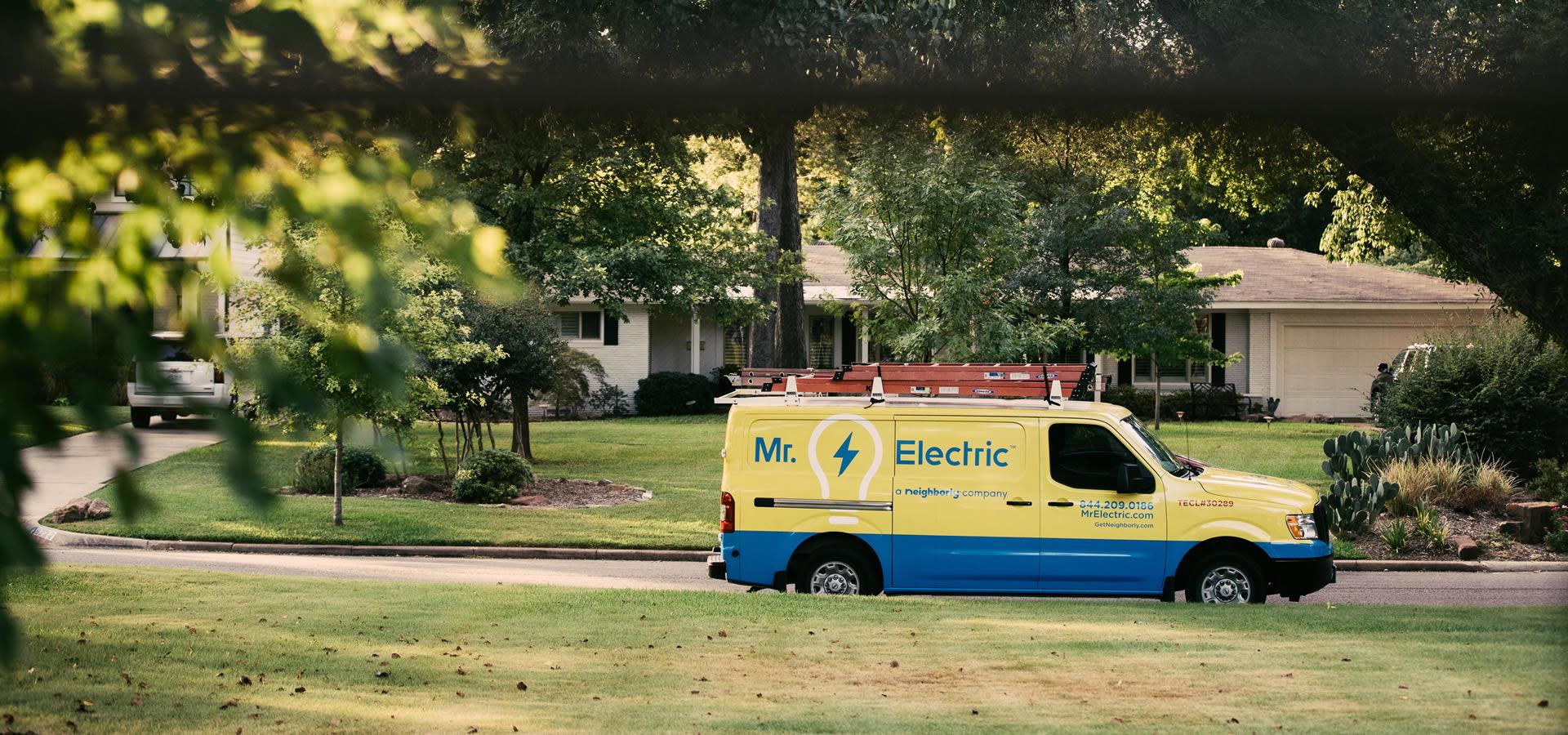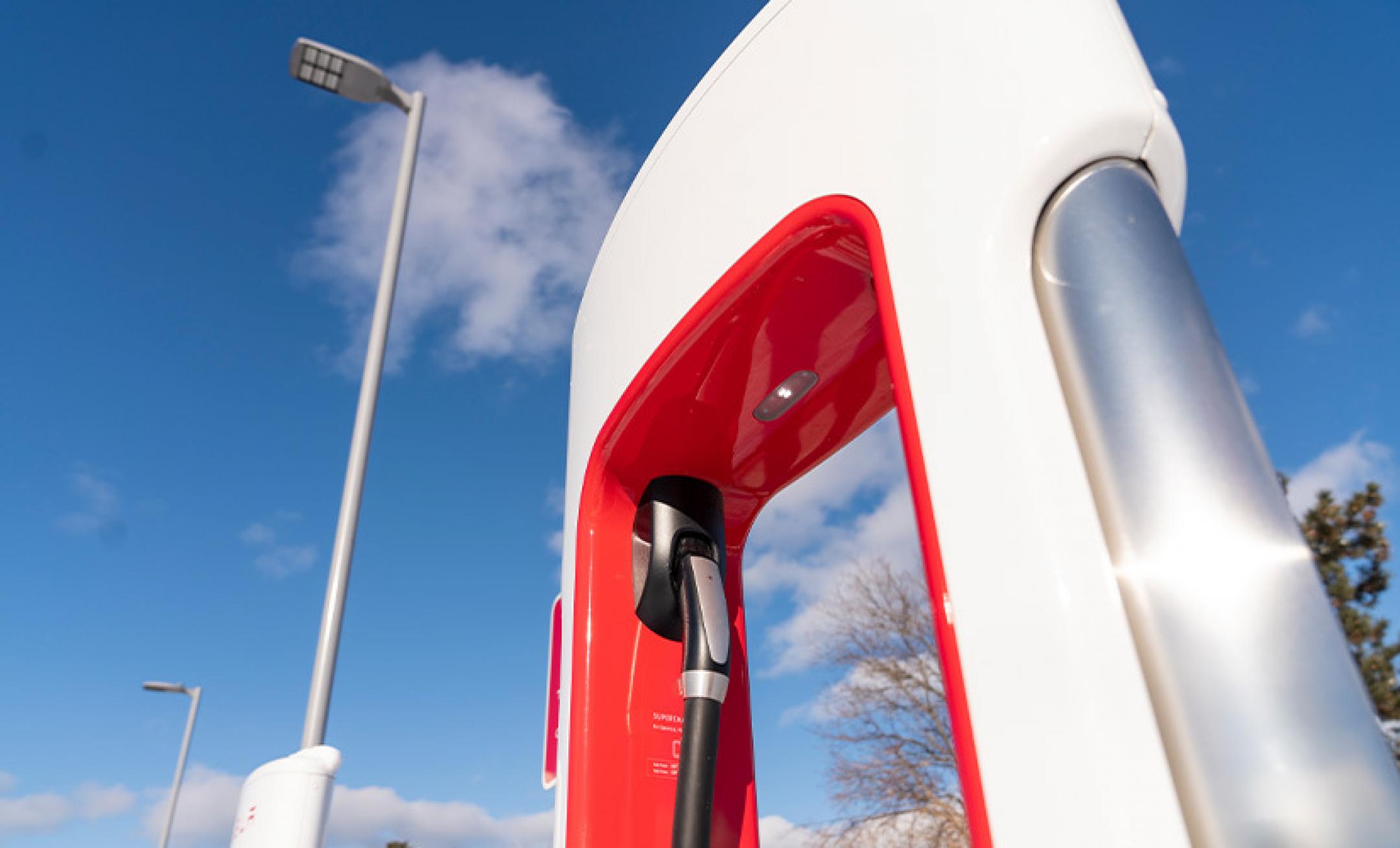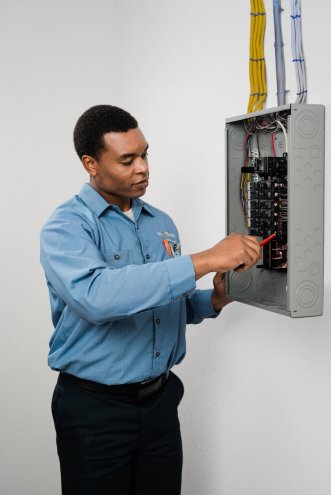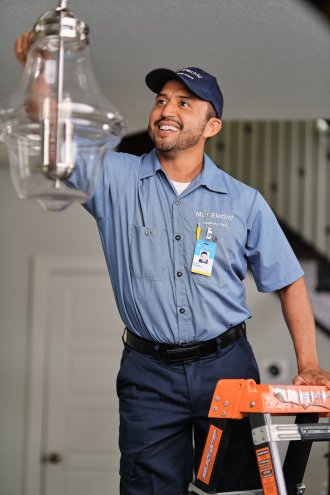How Long Does It Take to Charge an Electric Car?
Many drivers dream about owning an electric car, but never take the first step because they are concerned about the charging process. A common question among potential buyers is “How much time will it take to charge my electric vehicle?”. At Mr. Electric, we offer high quality commercial and residential services including EV charging station installation, repair and replacement in Katy and Houston, TX area communities. Read below to learn more about charging times, so you can determine whether an electric charging station installation is the best option for your needs.
The Most Common Types of Electric Vehicle Chargers
EV chargers come in a range of levels. Slower chargers are often rated at 3kW or 6kW and can take as long as 12 hours for a complete charge. Fast chargers have a rating of 7kW or 22kW. The lower end 7kW units can charge a car battery in 4 to 6 hours, while the 22kW only requires 1 or 2 hours for a full charge. The most advanced Electric Vehicle charging stations are called Rapid Chargers and can get your depleted battery ready for the road in less than an hour. These are usually rated at 50kW and are mostly found at public service stations that receive a high amount of traffic.
How to Charge Your Electric Car at Home
New electric car drivers sometimes rely on a local service station for recharging. However, this method can be risky, especially for those living in suburban or rural communities that don’t have many commercial charging stations available. Others choose to plug their cars directly into the outlet, but this can be a dangerous option, as it compromises the safety of your electrical system and your new investment. In addition, the level 1 chargers that often come with an electric vehicle can take up to 20 hours for a complete charge, making it impractical for drivers who wish to use their electric car for a daily commute. An at home level 2 charging station is the best way to ensure that your car will have the fuel it needs to get you through the day, without worry or anxiety. It also offers the most energy efficient and cost effective way to charge your car. Level 2 chargers can be plugged into a dedicated 240V outlet and can safely and effectively charge a car up to 7 times faster. If you’re going to drive your new car daily, then a level 2 EV charging station installation is a great investment that will be well worth the effort.
Have You Decided to Invest in an Electric Vehicle Charging Station? Call Mr. Electric Today
Are you ready to install an EV charging station in your home or commercial property? Then call Mr. Electric. Our certified, licensed and insured electricians are ready to help provide a safe and effective way to charge your favorite electric car. Contact our office for more information or to schedule an appointment with an experienced electrician in Houston, Humble, Spring, Crosby, The Woodlands, Cypress, Tomball, Rosenberg, Texas or a surrounding metro area neighborhood.







